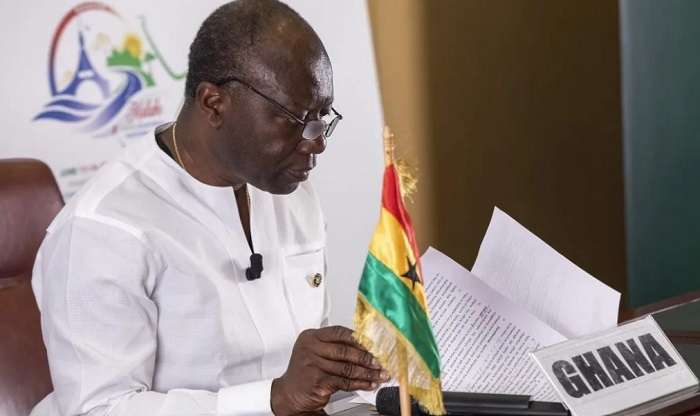The Government of Ghana has introduced two frameworks on emergency expenditure and audit to strengthen fiscal discipline and enhance accountability in Public Financial Management (PFM).
In a statement, Mr Ken Ofori-Atta, the Minister of Finance, said the move forms part of crucial steps towards providing a means of making government more accountable to the citizenry.
The two tools, Emergency Expenditure Management Guidelines, and the Audit Recommendations Implementation and Follow-up Instructions for Public Institutions was launched in Accra by the Ministry of Finance.
Ken Ofori-Atta explained that the frameworks are “designed to provide a clear, transparent framework for how we respond to crisis and uphold fiscal discipline in public emergencies as well as improve public accountability. The guidelines present procedures and internal controls that will direct service delivery units on the means to access, manage, and account for funding during an emergency with efficiency and transparency, while ensuring compliance with the various requirements of the PFM laws,” the Minister said.
“Ultimately, our collective ambition must be to create an environment where every financial decision is made with integrity, and where mistakes are not only identified but rectified,” Mr Ofori-Atta added.
Inspired by challenges on expenditure during the COVID-19 pandemic, the tracking and auditing frameworks are to strengthen government’s machinery to respond effectively to emergencies, and strictly comply with PFM Acts.
Madam Eva Mends, the Chief Director of the Ministry of Finance, said while some frameworks existed, it is important to take further steps to strengthen accountability frameworks to prevent debt accumulation. She expressed confidence in the frameworks helping to remove discretionary spending during emergencies and enhance management of public resources.
Tracking Tools to Reduce Irregularities in Public Institution
Dr Eric Oduro Osae, the Director General, Internal Audit, also said the implementation of the tracking tools would help reduce irregularities in public institution and resources.
Dr Eric Oduro Osae indicated that some fiscal measures by the government have led to improvement in public expenditure, and that the two frameworks, when effectively implemented would further enhance public financial management and accountability.
Dr Oduro Osae cited the irregularities of Colleges of Education and Pre-University Educational Institutions in 2022, which reduced by 58.6 per cent over that of 2021 amounting GHS10,821,146.02, and 30.6 per cent reduction in operations of Ministries, Agencies, and Departments, for examples.
Others were the 13.86 per cent reduction in irregularities of public corporations and other statutory institutions, and 18.9 per cent reduction in the use of the District Assemblies Common Fund for 2022.
“Follow up and tracking would in addition to bringing procedural clarity in the implementation of audit recommendations, improve coordination and reduce duplicity among state institutions in ensuring that audit recommendations are implemented to the later.”
Dr Oduro Osae
Meanwhile, at the heart of fiscal prudence is a recognition of the limits to public spending. There are limits to how much spending can be financed through higher taxation, as increasing income-tax rates is both politically unpopular and economically damaging. Limits also exist if the government takes the politically easier route of financing spending with budget deficits, which is the case of Ghana.
READ ALSO: Afreximbank Opens CARICOM Office to Expand Africa-Caribbean trade and investment relations




















